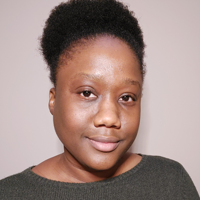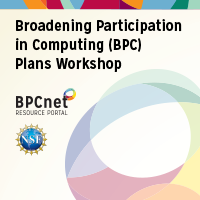Computing Research Association Receives $5M Grant for UR2PhD: An undergraduate research to PhD national mentoring program
The UR2PhD Program aims to increase the percentage of women entering PhD programs by at least 15% per year, with even higher increases for U.S. citizens and permanent residents.
The Computing Research Association (CRA) announced today that it has received a $5 million grant from a philanthropic partner to support the Undergraduate Research to the PhD (UR2PhD) program. UR2PhD (read as “you are 2 PhD”) focuses on engaging more women who are U.S. citizens and permanent residents in computing PhD programs through a virtual, nationally managed approach to quality undergraduate research opportunities and to bridging the gap to PhD applications.
Project Goals
The U.S. role as a tech leader depends on both the number and diversity of PhDs graduating in computing. Researchers with computing PhDs – particularly those in the artificial intelligence/machine learning field – shape our technology, and hence society in the United States and beyond. If these researchers do not represent the society they are shaping, we not only sacrifice potential technological innovations and accompanying economic benefits, but we also risk doing irreparable harm to vast segments of our population, both through the impacts of the developed technologies and the fact that some groups are shut out of the financial stability and influence provided by these technology leadership positions. And yet, 2021 CRA Taulbee survey data indicates that only 23.3% of computer science PhDs who graduated in the 2020-21 academic year identified as women, and 68.7% of those women were nonresidents. There is an urgent need to increase the number and percentage of women who earn PhDs in computing and become leaders in technology research, especially women who are U.S. citizens and permanent residents.
To this end, UR2PhD is a new project to increase the percentage of women entering PhD programs by at least 15% per year, with even higher increases for U.S. citizens and permanent residents.
Specific objectives are to:
- increase the number of undergraduate research opportunities for women by expanding universities’ capacities for high-quality undergraduate research; and
- close the gap between a first research experience and a successful PhD application.
Proposed Activities
The UR2PhD program will meet these objectives by leveraging promising and proven successful efforts to engage women in research and vastly scaling these efforts through a virtual, nationally managed structure.
UR2PhD comprises three activities:
- Increase the capacity of computing departments to provide high-quality undergraduate research opportunities through a twice-annual (academic year and summer) virtual undergraduate research methods course and research community.
- Grow the capacity and quality of research experiences for undergraduates (REUs) through a virtual mentor training program for PhD students to serve as REU mentors that is grounded in culturally responsive mentoring practices that ensure mentors are trained to support students from all backgrounds.
- Support and retain students from REU to PhD programs through a series of online REU-to-graduate-school bridge workshops for third- and fourth-year undergraduates, keeping third-year students engaged in research, while supporting fourth-year students through the PhD application process.
CRA Collaboration
UR2PhD is a collaboration between CRA’s Education Committee (CRA-E) and its Committee on Widening Participation in Computing Research (CRA-WP). CRA-E addresses society’s need for a supply of well-educated computing researchers by providing resources and professional development, honoring undergraduate student research and faculty mentoring achievements, and leading activities that promote the pursuit of graduate education and research careers. CRA-WP focuses on increasing the participation of populations minoritized in tech via community building, career mentoring, information sharing, and effecting systemic change for undergraduate and graduate students, postdoctoral researchers, faculty, and industry and government researchers.
CRA’s Center for Evaluating the Research Pipeline (CERP) will conduct both formative and summative evaluations of the program’s outcomes with respect to increasing the number of women pursuing PhDs in computing. CERP will develop survey instruments, conduct surveys and focus groups, analyze data, and track the outcomes throughout the program’s timeline.
Experience Promoting Undergraduate Engagement in Computing
CRA-E and CRA-WP have experience leading large-scale projects that support and promote undergraduate engagement in computing research and continuation to graduate study. CRA-E and CRA-WP have designed and implemented the National Science Foundation’s CSGrad4US Fellowship mentoring program, which guides industry professionals through the PhD application process. CRA-WP’s Distributed Research Experiences for Undergraduates program matches women and other undergrads minoritized in tech with mentors for paid research internships and has been shown to increase rates of entry into PhD programs. CRA-WP’s Grad Cohort workshops have educated thousands of graduate students about how to thrive in graduate school. CRA-E provides online resources for undergraduate researchers and graduate school applicants (via the Conquer site) and annually recognizes outstanding undergraduate researchers in North America.
The four UR2PhD program leaders also have extensive experience in developing large scale programs:
Christine Alvarado is a teaching professor in the CSE department and the associate dean for the division of undergraduate education at the University of California, San Diego (UC San Diego). In 2014, she founded the CSE Early Research Scholars Program (ERSP), which has engaged 339 early undergraduates (~50 per year) in computing research at UC San Diego, including 200 women and non-binary students and 75 students from underrepresented racial groups. She has overseen ERSP’s expansion to seven universities.
Lori Pollock is professor of Computer and Information Sciences at the University of Delaware. Since joining CRA-WP in 2001, she has been involved in the Grad Cohort program and Virtual Undergraduate Townhalls. As CRA-E co-chair, she co-created CSGrad4US. She adapted ERSP for Delaware and co-led Partner4CS, affecting state K-12 CS policy, offering teacher workshops and a course for undergraduates to support teachers.
Monique Ross is an associate professor of engineering education at The Ohio State University. Her work is focused on understanding the experiences and pathways of Latina and Black women in computing. She brings her expertise in REUs, inclusive pedagogy, and intersectional considerations. She also works on the Center for Inclusive Computing efforts to broaden participation in computing and has garnered and managed over $2 million in grant funding.
Kelly Shaw is a professor in the department of computer science at Williams College. She is co-chair of CRA-E and has served as co-chair of the Outstanding Undergraduate Researcher Award committee. She is also a member of the development team for the CSGrad4US mentoring program. Dr. Shaw will serve as the main contact for the UR2PhD program.
About CRA
CRA represents more than 250 North American organizations active in computing research: academic departments of computer science and computer engineering; laboratories and centers in industry, government, and academia; and affiliated professional societies. Its mission is to catalyze computing research by joining with industry, government, and academia – a role it plays by leading the computing research community; informing policymakers and the public, and championing a diverse, welcoming, equitable, and socially responsible computing research community. For more information, see cra.org.




